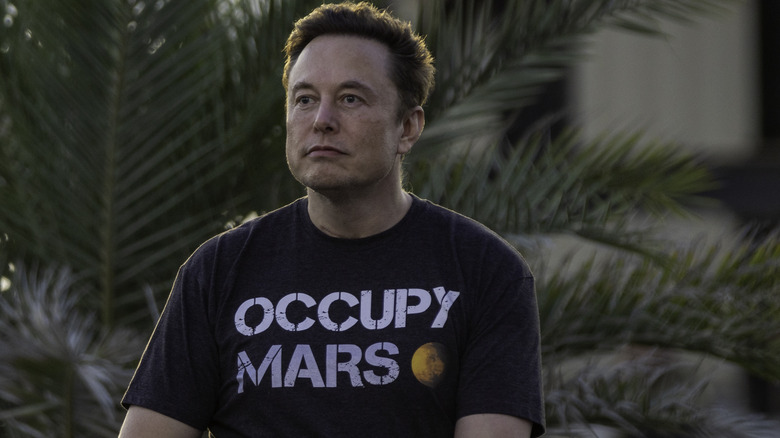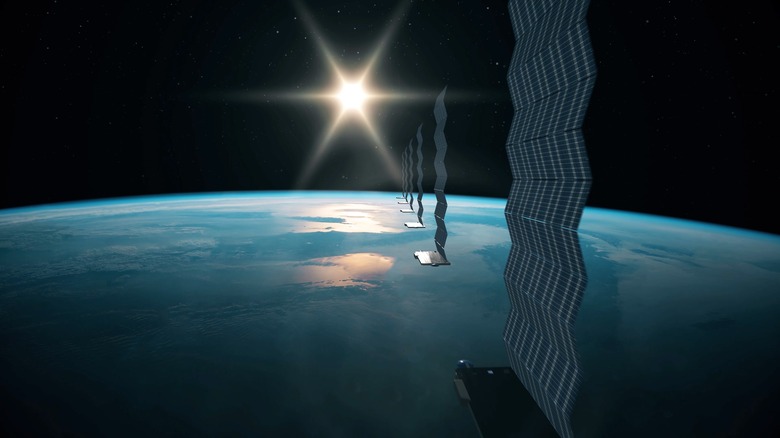Russia May Have Just Put Elon Musk's Starlink On Notice
It seems like Elon Musk's Starlink initiative might have been given a stern warning by Russia in a statement that could come with grave implications. The Starlink map shows that its coverage had spread out to most parts of the globe, with support in some countries already planned for years ahead. However, Russia appears to be the biggest country not on Starlink's waiting list, and that might not change any time soon. In March, Ukrainian Vice Prime Minister Mykhailo Fedorov asked Musk to give his country access to Starlink's services amid the ongoing Russian invasion.
The SpaceX founder later responded to Ukraine's pleas in an expeditious and amicable manner. Within just two days, Ukraine received satellite internet access, but not without Musk warning users of the potential dangers of utilizing Starlink in wartime. While this might not have directly placed SpaceX in Russia's crosshairs, Musk's swift compliance might have exacerbated the issue even further. The question now is, does Russia see Musk's indirect involvement in aiding its opposition as somewhat of a military threat that needs to be addressed, or is it all simply water under the bridge?
From Russia with ... concern
Now, it appears that the Russian Delegation is giving SpaceX a similar treatment by addressing its actions indirectly in a warning against the use of private satellites and their intervention. In a translated statement earlier this week, the Russian Delegation spoke out regarding the "extremely dangerous trend" of using civilian and commercial space technologies for military purposes, claiming that this had "become apparent during the events in Ukraine." Although the statement didn't mention any space company in particular, it did remind the "United States and its allies" about the repercussions of having the privatize sector involved in the country's military activities.
The Russian Delegation explained that "quasi-civilian infrastructure" can be "a legitimate target for retaliation," adding that the "provocative use of civilian satellites is questionable under the Outer Space Treaty." Furthermore, it emphasized that the actions of Western countries could be putting the sustainability of peaceful space activities at risk. So far, Musk remained neutral in his stance on potential Russian propaganda proliferating online. In a previous tweet, the SpaceX founder revealed that Starlink won't be censoring Russian news sources as he considers himself a "free speech absolutist." Whether or not the Russian Delegation's recent statement will coerce Starlink into withdrawing its internet coverage in Ukraine — or if Russia will resort to extreme measures to do so themselves, for that matter — remains to be seen.

